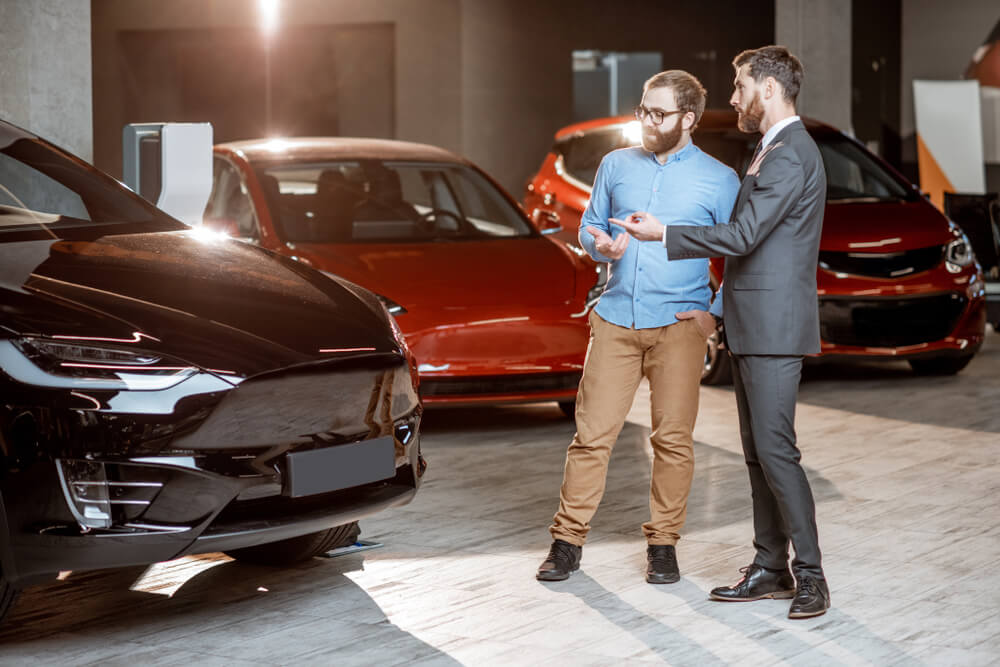ZeroSum’s Round Up: Essential Automotive Industry Reading November 2022
The ZeroSum Round Up is a collection of articles, reports, and other information that ZeroSum believes is useful to automotive dealers and others...
On August 16, 2022, President Joe Biden signed the Inflation Reduction Act into law. What is the impact to auto dealers? The automotive industry now has new, stricter requirements to make electric vehicles more affordable and therefore more widely used. The act also aims to reduce dependency on China and bring EV production back to the United States. What are the short and long-term implications? Read on to learn more.
What is the Inflation Reduction Act?
The White House describes the Inflation Reduction Act as a “historic law that lowers costs for families, creates good-paying jobs for workers, and grows the economy from the bottom up and the middle out.” Some of the main goals of the act include creating clean energy jobs that will reduce emissions, making tax codes fairer to the middle class, revitalizing American manufacturing, and lowering health care costs.
What are the automotive provisions?
The Inflation Reduction Act provides up to a $7,500 tax credit for consumers who purchase a new EV and up to $4,000 for those who purchase a used EV.
Requirements to receive the full $7,500 include:
Read the full list of requirements in the Inflation Reduction Act document.
How will the act impact auto manufacturers and dealers?
In the short term, it will be difficult for many vehicles to qualify for the tax credit. In a blog post for The Alliance for Automotive Innovation, John Bozzella writes, “there are 72 EV models currently available for purchase in the United States including battery, plug-in hybrid and fuel cell electric vehicles. Seventy percent of those EVs would immediately become ineligible when the bill passes and none would qualify for the full credit when additional sourcing requirements go into effect.” This means that while automakers adjust to the strict requirements placed upon them, very few vehicles will qualify for the tax credit over the next couple of years. In the short term, this could harm EV demand and sales for dealerships. Automakers will need to quickly shift their supply chains to align with the new requirements and acquire as many eligible vehicles as they can.
The good news for dealerships is that, in the long term, this act could increase EV demand and bolster sales in a way that would not have been possible before. When speaking on the new requirements, Ford CEO Jim Farley told reporters, “we’ve got to work through that but generally it’s positive for our industry.” Once manufacturers can qualify for the incentives, they’ll attract more customers than ever before, taking the EV industry to new heights.
Another benefit of the act is that in 2023, consumers will be able to transfer their tax credit to car dealerships. This credit could then be used as a down payment, essentially lowering the price of the car at the point of sale. This could make buying an EV much easier and more appealing for many shoppers. General Motors and Tesla cars will also become eligible in 2023 after some existing restrictions expire.
In summary, dealers can expect to see a slowdown in EV demand in the short-term but they should prepare for record-high EV sales in the long-term as automakers adjust to the new requirements.

The ZeroSum Round Up is a collection of articles, reports, and other information that ZeroSum believes is useful to automotive dealers and others...

The ZeroSum Market First Report is the automotive industry’s first source to predict month-end vehicle movement, providing vital supply and demand...

According to the most recent ZeroSum data, electric and hybrid vehicle inventory is rapidly increasing, up around 22% from September. For auto...
